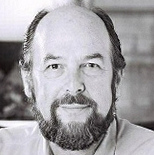Q: What do you mean by Enlightenment?" Wayne: When I talk about Enlightenment, I talk about it very, very specifically, and it's extremely simple. In humans, at around the age of two-and-a- half, a profound shift occurs in which we change from spontaneous, free-flowing beings, to creatures in which everything is about "Me!" and "Mine!" and how to get what "I" want and think "I" need. It is the moment that the false sense of personal authorship (FSA) starts. It happens to virtually every human being. It is the false sense that "I", as this body-mind organism, am the source that makes things happen. Q: You still get angry and sad. It just doesn't make you suffer? Wayne: Exactly! Anger and sadness are simply functions of the human apparatus. Humans are designed to experience a variety of emotions and reactions. Painful experience in itself does not create suffering. What creates suffering is involvement by the False Sense of Authorship in the painful experience. When the separate "me" (FSA) becomes involved in the pain of the moment, it projects the pain into the past or the future, resulting in suffering. Q: How does Enlightenment happen? How do you return to that state? It just happens? Wayne: It happens. It happens as part of the functioning of the universe. The pointer of this teaching— that I am calling The Living Teaching—is that everything happens that way; everything happens as part of the functioning of Totality. Q: I've heard you say that "the meat does not become Enlightened." What do you mean by this? Wayne: What I mean is that Enlightenment is transcendent of the body-mind. It is not limited to the physical organism. The physical organism was born and will die. They all do. Nobody gets out of this alive. Enlightenment is not a relative state that comes and goes. It is transcendent of this physical form and is eternal. That's why it's often said, as a pointer by sages, "I"—speaking from the perspective of Transcendence—"was never born, therefore I"—as Transcendence—"will never die, I am not this body, I am not limited to this form." Q: And so you have had a kind of peek into the eternal? Wayne: Who? You see, now you're thinking in terms of the body/mind again. Q: Since you are in your body. Wayne: No, no. I am not in my body. That's the whole point. When speaking from the standpoint of Transcendence, I am not in the body. I speak through the body. The body is a temporary phenomenon. I am the eternal. Q: So, at this point in your life you have both, actually. Wayne: Who "has" both? You keep positing a "me" that is Enlightened, and functioning as the body. What I am saying is that there is no such "me". There is simply the body which functions, and the "I" which functions through it. Q: And so the "I" is not the "me"? Wayne: The "I" is not limited to the "me". The "me" is the false claimer of the "I". It's the "me" who falsely claims to be the Source. Q: Why are the definitions of Enlightenment different from different masters? Is there anything common among all the definitions? Wayne: Enlightenment is essentially indescribable. The various definitions, or pointers to Enlightenment, are all relative and they're all limited. That's what they have in common. If you understand them to be poetry, rather than science, then you're way ahead of the game, because you're not looking to compare poems to find out which one is true. So, with the understanding that none of the descriptors of Enlightenment are inherently true, you can then go with the one you like, for as long as you like. Then when ready, you can switch to one you like better, until there is no longer a need for descriptions at all. ARISING OF THE FSA Wayne: There is indeed. When I talk about the False Sense of Authorship (FSA), I don't think of it as a lower state versus the higher state called Enlightenment. But the FSA is the mechanism through which human suffering happens and this makes it something people want to be rid of. Q: So even if someone would say, "I just washed my car," within that context you're saying that's perceived as authorship? Wayne: Not necessarily. It may or may not be perceived as authorship. After Enlightenment someone can say, "I washed my car," and it's a statement as devoid of authorship as "the sun rose at 6:53 this morning." Both are statements of fact. I—this organism—washed the car. That indeed happened. Q: The difference is? Wayne: The difference is if this FSA is present to claim the washing of the car, pride may follow. Within that pride is the seed of suffering. Wherever there is pride, guilt is soon to follow. Q: Where does the FSA come from? Wayne: Where it physically comes from and why it arises are questions I can't answer. All I can do is point to the fact that in virtually every human being, at approximately the age of two-and-a-half, this false sense of authorship arises. Q: So you see it as just a part of the human machinery and if it wasn't for humans, there would be no "me" perception in the universe? Wayne: I am hard-pressed to say what is happening in the rest of the universe, [laughter] What I can say is that as far as we know, the presence of the FSA is a dubious distinction of humanity. The sense of authorship is uniquely human. When that false sense of authorship later falls away, we call that occurrence Enlightenment. The curious thing about the disappearance of this false notion is that it doesn't change anything. Things remain as they always were. |
|||
|
|||


www.advaita.org.uk
Advaita for the 21st Century



Book Extract
What is Enlightenment?
Wayne Liquorman

Wayne Liquorman (aka Ram Tzu) was a disciple of Ramesh Balsekar and has himself taught since 1996 and written several books. Outspoken, uncompromising and frequently very funny, his teaching is specifically aimed at espousing the reality of 'All is Consciousness' and providing pointers to this truth.
Website: http://www.advaita.org/
Biography
Buy from Amazon US
Not yet available from Amazon UK
BOOK DETAILS
Publisher:Advaita Press
ISBN: 978-0-929448-22-0
Format : Paperback
Pages: 228
List Price: £-, US$19.00
Where to Buy
AUTHOR DETAILS

